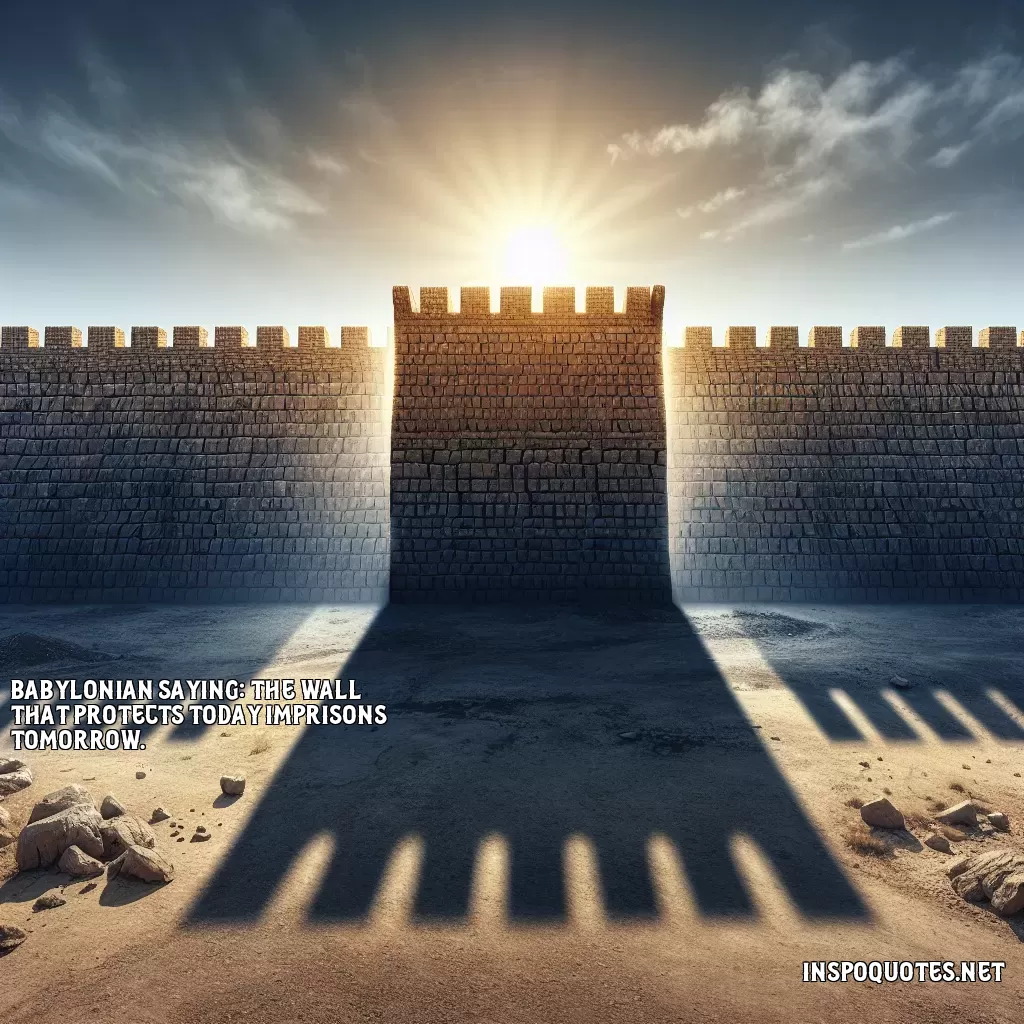
Babylonian Saying: The wall that protects today imprisons tomorrow.
Author: Anonymous
👁️ 43 views
The Babylonian saying, "The wall that protects today imprisons tomorrow," encapsulates a timeless truth about the paradoxical nature of safety and security measures. At its core, this proverb speaks to the dual-edged nature of barriers we erect in our lives, whether physical, social, or psychological. In a literal sense, walls have historically been constructed to keep threatening elements out, providing a sense of security for those within. Cities like Babylon were fortified with walls to protect inhabitants from external invasions. In this context, the wall serves its protective purpose well. However, the proverb suggests that walls, while initially serving as shields, can transform into prisons over time. As circumstances change, what once kept danger at bay may ultimately limit freedom. For instance, if external threats dissipate, yet the walls remain, they may prevent expansion, movement, and growth. Metaphorically, the proverb can be applied to any form of boundaries or restrictions. Consider personal boundaries we set in our relationships or the mental blocks we erect to protect ourselves from emotional harm. Initially, these walls can offer comfort and security. However, if held onto too rigidly, they can hinder personal growth, limit experiences, and reduce one's openness to new ideas or people. Furthermore, in a socio-political context, policies or laws designed for protection can become outdated, ossifying into structures that restrict liberties and adaptation. The saying urges us to remain vigilant and flexible, constantly reassessing the purpose and impact of the protections we cherish, ensuring they do not inadvertently become constraints. In essence, the proverb is a call to balance safeguarding oneself with the need for adaptability and openness to change.
Quote By: Anonymous
Anonymous is an international hacktivist collective known for its decentralization and anonymity, which emerged in the mid-2000s. Composed of individuals united by shared goals, the group has engaged in various online protests and cyber operations, often targeting organizations and governments for perceived injustices. Their notable campaigns include support for the Arab Spring, actions against the Church of Scientology, and involvement in social justice movements, emphasizing freedom of information and internet privacy.
Bio added on: 2025-02-13 12:10:06